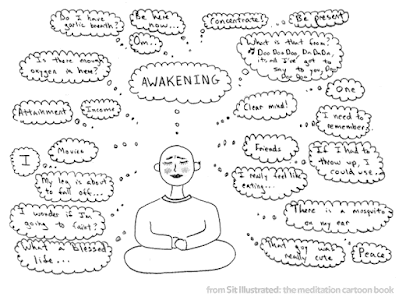By Shevlin Sebastian
During Onam, on social media, there were many photos of happy marriages and families. Husband and wife are smiling and so are the children. It gives the impression that everybody is happy.
But are they?
A former colleague told me of a couple she knew, married for over 25 years, who would step out in public, smile adoringly at each other, and sometimes hold hands. But at home, the husband remains ice cold towards the wife, does not have any physical contact, rarely speaks to her and sleeps in another room.
She told me of another couple who had a fractious relationship for 50 years. They rarely spoke to each other and slept in different rooms. When the husband died, the wife did not go to the funeral, so great was the animosity. So, why did they not opt for a divorce? She is not sure about the reasons for that.
A friend pointed out to me a photo of a couple on her mobile phone. It was taken during Onam celebrations. The husband wore a saffron juba while the wife was in a Kerala-style saree, in a pleasing beige shade. Both smiled happily at the camera. “She hates him,” my friend said. “He is a womaniser. But she has no career, hence, no income, and is afraid to leave, for a life of uncertainty.”
This illusion of ‘happy marriages’ is a staple of Kerala society.
The problem is that it is still not socially acceptable for middle-aged and older couples to divorce. So, they live with each other even though there is no love or joy in their union. The thinking is: too much time has passed. What is the point of breaking up now?
If divorce had social sanction, maybe a few would have opted for it, especially if they are well-to-do. In a paradox, Malayali society has accepted divorce among youngsters.
When a daughter wants to divorce, the parents offer support and even encouragement.
Divorces happen often, and on flimsy grounds. “He snores at night,” was one excuse. “He hid his baldness under a wig,” was another reason for the swift dissolution of the marriage.
So, in Kerala, what you see is not what you get. Behind closed doors, a dramatically different drama takes place. But the fear of public ridicule and snide remarks makes all this remain indoors. But fragments of gossip slip out when the wife might tell a friend who might tell another friend and it goes on.
So, how do you gauge whether you are in a discontented marriage?
One of the surest signs is if the husband and wife sleep in different rooms and refuse to have any physical contact.
A few years ago I went to interview a thirty-something marriage counsellor whose clients were couples in the IT industry. She said, “One of the first questions I ask is if they are sleeping together. If not, it is difficult to save the marriage.”
Sometimes, a physical touch or a hug can provide a healing balm. Just sleeping next to each other at night might help. Most problems are minor irritations that get magnified.
But the man-woman relationship rarely works. They are on two different wavelengths. What she likes and desires, he is not aware of, and vice versa. Plus, spouses get bored with each other. The sexual desire for each other has long faded away. In a consumerist culture, this boredom gets even more acute. Sometimes, husbands and wives slip into affairs. All this is simple to arrange thanks to the mobile phone. But an affair rarely brings any form of satisfaction. It ends in recriminations and sorrow.
One is not sure about the impact of all this on the children.
I know of a teenage daughter who was furious with her mother for divorcing the father. Then the girl got even more upset when the mother married again. “I can’t live alone,” she told her daughter. They rarely speak to one another. So it was a surprise to see a ‘happy’ family photo they posted during Onam on Facebook with the new husband, in a crisp white dhoti and mundu, in the centre of the frame.
Most children of unhappy marriages feel relieved when they get away from the family nest. They escape to the wider world and get busy with their lives and careers.
Maybe the time has come, that once the children have grown up and moved away, the spouses could split up in a friendly manner, and go off in different directions. Why carry on this agonising relationship till the end of time? Life is so short, anyway. Why waste it in frustration and hatred? What do they gain by sticking together?
It is devastating to see the fake drama of closeness of most marriages at social functions. Of course, body language is a giveaway.
At a wedding reception, a couple, probably married for over 25 years, stood to take a snap. The sign that all was not well with the marriage was when the woman leaned her face away from the husband. Happy couples lean into each other.
Why did she lean away? What is wrong with them?
There is an enormous elephant in the room: domestic violence.
Does he beat her up? Is she bearing up with it, for
the sake of the children?
Apart from physical abuse, verbal abuse can be equally damaging. It lacerates the heart.
What are the solutions?
Counselling, of course, can help. Meditation too. An easy one like Vipassana can have a calming influence on the psyche. Finally, the time has come for Kerala society to accept middle-aged and older divorces so that people can have a second stab at this elusive thing known as happiness.





